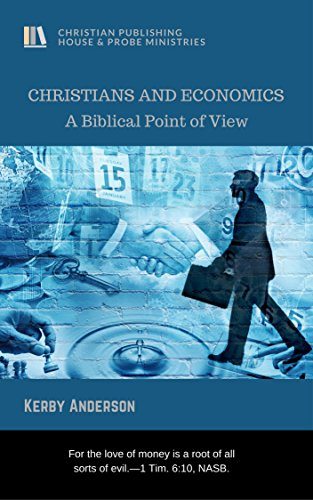Don Closson considers the impact that affirmative action, multiculturalism, and speech codes have had on education. He also argues that the heart of the issue is the rejection of both the Judeo-Christian worldview and Western Civilization.
The Power of Political Correctness
The media has recently taken notice of a trend in education that has actually been around for some time. This trend has been obvious to anyone well-acquainted with the goings-on in our citadels of higher learning or even on selected high school campuses. The term Political Correctness, or politically correct speech, covers most of the issues involved. Multiculturalism is often given as the driving ethic that prompts one to be politically correct.
At the foundation of this movement is the belief that all education is political. Nowhere in the curriculum can one find a hiding place from race, class, or gender issues. Added to this assumption is the law of moral and ethical relativism: All systems of thought, all cultures, are equal in value. To assume otherwise is politically incorrect by definition.
Just how important this type of thinking is to those who influence our nation’s students is reflected by some of their comments. According to Glenn Maloney, assistant dean of students at the University of Texas at Austin, “Multiculturalism will be the key word for education. I believe that will be the mission of the university in the 90’s.”(1) Donna Shalala, chancellor of the University of Wisconsin at Madison, adds that this movement amounts to “a basic transformation of American higher education in the name of multiculturalism and diversity.”(2)
A recent study of the New York school system found that “African Americans, Asian Americans, Puerto Rican/Latinos, and Native Americans have all been the victims of an intellectual and educational oppression that has characterized the culture and institutions of the United States and the European American worlds for centuries.”(3)
The report goes on to state, “Unfortunately, stereotyping and misinformation have become part of the dominant culture enveloping everyone. . . . Because of the depth of the problem and the tenacity of its hold on the mind, only the most stringent measures can have significant impact.”(4)
And stringent measures are what have occurred. Curricula, admissions policies, the hiring and promotion of faculty, and the freedom to debate issues have all been modified by those who currently define political correctness. There is a growing body of evidence that quota systems are now in place in many admissions offices across the country. Textbooks are being written and courses changed to promote multiculturalism at the expense of teaching about Western Civilization. Professors are unable to teach their courses or participate in the academic enterprise because their views fail to conform to the new guardians of culture.
What is most appalling is the attempt to remove the freedom of speech from students who fail to conform to the correct position on a broad spectrum of topics. What is ironic is that many of those now attempting to limit the freedom of speech of students in the name of multiculturalism are the very same individuals that began the free speech movement in the sixties, arguing for academic freedom and student input into the curriculum. It seems that the issue was more a matter of gaining power to control the curriculum and inject it with their views rather than truly to promote freedom of academic endeavors.
Ethnic Studies
Let’s look at a few places where political correctness has had a major impact. In 1988 the Stanford faculty voted to change the Western Culture course, one of the most popular on campus, to “Cultures, Ideas and Values.” The fifteen-book requirement was dropped and replaced with the admonition to give substantial attention to issues of race(5) and gender. The reading list now had to include a quota of works by women and minorities. Out goes Shakespeare, in comes Burgos-Debray.
Shakespeare is deemed to be racist, sexist, and classist, a product of the ultimate evil–Western Civilization. French writer Elisabeth Burgos-Debray is, on the other hand, politically correct. One of her works, now part of the Stanford curriculum, describes a Guatemalan woman’s struggle against capitalist oppression. She rejects marriage and motherhood and becomes a feminist, a socialist, and finally a Marxist, arguing politics with fellow revolutionaries in Paris. According to the author, this simple Guatemalan woman speaks for all the Indians of the American continent.(6)
Berkeley, Mount Holyoke, and the University of Wisconsin are just a few of the schools where students must take a course in ethnic studies but are not required to take a single course in Western Civilization. At Berkeley, the ethnic studies course is the only required course on campus, and Wisconsin students can graduate without taking any American history. Ohio State has gone even further, revamping its entire curriculum to reflect issues of gender, race, and ethnicity. The chairman of the English department at Pennsylvania State University has remarked, “I would bet that Alice Walker’s The Color Purple is taught in more English departments today than all of Shakespeare’s plays combined.”(7)
An ironic twist to this revolution is that when writings of third- world authors are included in the curriculum, they rarely are the classics from that culture. Instead, they tend to be recent, Marxist, and politically correct works.
Unfortunately, curriculum revisions are not confined to the college campus. The state of New York recently commissioned a committee to review its statewide secondary-school curriculum. The results were a bit startling, to say the least.
According to the report, no topic is culture-free. The Eurocentric, white, American culture currently dominating the curriculum must give way to one which represents all cultures equally. Even math and science were cited as culturally biased because they failed to give credit to contributions from other cultures.(8)
In the social sciences, even more radical demands have been made. One Black Studies professor charges that the current curriculum in New York’s high schools reflects “deep-seated pathologies of racial hatred.” He argues that time spent studying the U.S. Constitution, which is seriously flawed in his opinion, is grounds for miseducation. He adds that studying the Constitution is egocentric and blatant White Nationalism.(9)
Instruments of Exclusion
In chapter 2 of his book Illiberal Education, Dinesh D’Souza takes up the case of high school senior Yat-pang Au. To make a fairly long story short, Yat- pang received a rejection letter from the University of California at Berkeley in 1987 although he had graduated first in his high school class, scored 1340 on the SAT, earned letters in track and cross-country, served on the student council, and won seven scholarships from groups such as the National Society of Professional Engineers. What went wrong?
It wasn’t his credentials. In fact, Yat-pang was considerably above the Berkeley average in his qualifications. His only real problem was his race, and what chancellor Ira Michael Hayman called “a little social engineering.” Under Hayman the university began to devalue the importance of merit and achievement in admissions in order to achieve a racially balanced student body, one that reflects the population at large.
As a result, this family of immigrants from Hong Kong found that their son could not go to Berkeley although ten other students from his high school had been accepted with lower qualifications. The policy of racial balance which seemed so fair to Hayman was anything but fair to the Au family.
If Yat-pang had been Hispanic or Black he would have had no problem attending Berkeley. Asians, many of them immigrants, are now being excluded from Berkeley because they happen to be a too-successful minority that values the family and education.
Unfortunately, Berkeley is not the only place one can find this type of discrimination. Harvard, UCLA, Stanford, Brown, and others have been charged with discrimination towards Asians. As D’Souza writes, “Quotas which were intended as instruments of inclusion now seemed to function as instruments of exclusion.”(10)
Even if we set aside Yat-pang’s individual rights, does this policy make sense for the minorities it is trying to help? Often it does not. D’Souza notes that Blacks and Hispanics admitted under reduced academic requirements do not fare well at Berkeley. In one study, only 18 percent of the Black and 22 percent of the Hispanic affirmative-action students graduated within five years. Almost 30 percent of Black and Hispanic students drop out at the end of their freshman year.(11) Because we have set aside academic preparation as the criterion for admission to our top schools, many students who cannot compete are being admitted. They simply drop out, more frustrated and angry than before.
Another issue that goes hand-in-hand with admissions is the issue of testing itself. Many argue that since some groups do better than others on the SAT, the test is biased. A New York federal judge has ruled that, since women do not do as well as men on the SAT, using the test as a criterion for awarding its Regents and Empire State scholarships violates state law.(12)
What is remarkable about this trend is that testing was installed in the 1920s to fight arbitrary bias in admissions. When one removes testing, which even the critics must agree is still the best way to predict academic success, all other criteria except race and gender are subjective.
In light of this fact, College Board president Donald Stewart, who is black, has argued that the test covers words and ideas necessary for success in college, regardless of cultural background.(13)
Freedom of Speech
Those who consider themselves politically correct have inflicted grave damage on the concept of free speech. It is interesting to note that Christians have endured free-speech restrictions for years, but only recently have others who hold to politically incorrect positions experienced this form of discrimination.
Restrictions on speech come in three different forms on campus. The most widespread form is the conduct code. Another is the refusal to allow conservative speakers to address groups on campus. And last is the censure of faculty members who step outside the sphere of politically correct thought.
The University of Michigan has been a leader in restricting First Amendment rights. Responding to a student radio disc jockey who invited other students to call in their favorite racial jokes, the university began a long crusade to stamp out racism, sexism, and a multitude of other “isms.” Instead of just punishing the offender, all students were now under suspicion, and all speech would be monitored carefully.
A new policy on discrimination and discriminatory harassment was approved. It defined as punishable “any behavior, verbal or physical, that stigmatizes or victimizes an individual on the basis of race, ethnicity, religion, sex, sexual orientation, creed, national origin, ancestry, age, marital status, handicap, or Vietnam-era veteran status.”(14)
Debate on these topics was to be restricted in fear that someone might be stigmatized by the discussion. The so-called marketplace of ideas that colleges are supposed to represent had been shrunk down to convenience-store size.
Since one cannot be certain that even the most balanced discussion of a topic such as gay rights or religious cults might not stigmatize a fellow student, one must refrain from entering into that territory. The result of this type of policy is to guarantee a monopoly to the radical Marxist and feminist ideas now being promoted by the faculty and administration on many of our campuses.
Fortunately, this policy was successfully challenged by an unnamed psychology professor who realized that most of the subject matter he dealt with in class might stigmatize someone. In a strange twist, the ACLU was on the right side of this issue and represented the professor. Eventually a U.S. District Court struck down even a modified version of the code. But there are still codes in effect at Emory, Middlebury, Brown, Penn State, Tufts, and the Universities of California, Connecticut, North Carolina at Chapel Hill, and others. Many more schools are considering implementing codes.(15)
Some groups on campus have used more blatant tactics to keep conservatives from speaking. Supreme Court Justice Sandra Day O’Conner, U.N. ambassador Jeanne Kirkpatrick, and Secretary of Health and Human Services Louis Sullivan have all been victims of censorship in the form of gay and pro-abortion groups shouting them down. In one case, black students with clubs disrupted a meeting for the National Association of Scholars, a conservative group of professors, charging that they were actually supported by the Ku Klux Klan.(16)
Another form of censorship is the silencing of faculty. Alan Gribben, a professor at the University of Texas, made the mistake of voting against the politization of a writing course in the English Department. As a result he was ostracized by the department and decided to leave after seventeen years on the faculty.(17)
The “Ism” Proliferation
The goal of the political correctness revolutionaries on campus is the removal of any remnant of racism, sexism, class elitism, and even lookism, the practice of treating people differently because of their looks. There are also specific positions on ecology, foreign and domestic policy, homosexuality, and animal rights that are politically correct.
The hope behind all of this is the creation of a society where each culture and social group is appreciated for its contributions. But the fallout has been to encourage people to find some reason to declare oppression, for it seems that only those who are oppressed are in a position to determine what is politically correct. White, middle-class males are the great Satan incarnate–even the most repentant among them must be watched closely.
Politically correct people argue that they are calling for a philosophy of inclusion. They are not thought police, they say; they are only concerned with correcting centuries of unfairness. In reality the effect of this movement has been to silence or remove from campus those who differ from the politically correct position. If a professor opposes racially based admissions policies, he is racist. If a student holds to religious convictions concerning homosexuality, she is homophobic. The issue really goes beyond mere tolerance; the goal of this movement is to remove opposition to the plans of the radical left.
Since those who are politically correct agree that Western Civilization is the cause of all evil in the world, one might ask what should replace it. Not surprisingly, the writers and heroes of this movement tend to be Marxist, feminist, and gay. It is interesting that Marx, a white male European, is still considered politically correct, although he held quite incorrect views on racial issues (in fact, he spoke positively concerning slavery in America).(18)
If true multiculturalism were the issue, these folks would be calling for the study and implementation of traditional cultures from around the world, which, by the way, are just as racist and far more male-dominated than our own. Whether one looks at Islam or the teachings of oriental traditions, one finds that a dim view is taken of both modern feminist thought and homosexuality.
The tradition of Western thought has been to deal with ideas that transcend race, and it has been anything but homogeneous in its conclusions. The irony of the accusations leveled at Western thought by the politically correct is that the ideas they favor have been most fully developed in America and Europe. Even with all of its faults, Western Civilization has been the most open and tolerant of all societies. It has been eager to find and incorporate ideas that are beneficial from other cultures.
All the important issues considered on our campuses have religious elements. Whether one is considering the uses of technology or the relationships between the sexes, everyone is informed by his or her religious presuppositions. Placing a prior restraint on someone’s freedom to speak because he is coming from a different position not only violates our historic view of freedom of speech but also can be used to further remove Christian thought from our schools.
What those in authority on our campuses really hope to accomplish is the unquestioned implementation of a worldview that releases man from his moral obligation to a creator God, a God who sees all men and women, regardless of their color, as in need of redemption. As Christian parents and alumni, we need to make certain that colleges remain places where students can seek and find the truth.
Notes
1. “Multiculturalism Seen As Education Key,” Dallas Morning News, 9 December 1990, sec. A, p. 56.
2. Dinesh D’Souza, Illiberal Education (New York: The Free Press, 1991), 13.
3. Helle Bering-Jensen, “Teaching All Things to All People,” Insight, 2 April 1990, 49.
4. Ibid.
5. Allan C. Brownfeld, “`Cultural Imperialism’ Is Destroying American Education,” Human Events, 29 June 1991, 523.
6. D’Souza, Illiberal Education, 71.
7. Brownfeld, “Cultural Imperialism,” 523.
8. Bering-Jensen, “Teaching All Things,” 50.
9. Ibid.
10. D’Souza, ILLIBERAL EDUCATION, 29.
11. Ibid., 39.
12. Ibid., 44.
13. Ibid., 45.
14. Ibid., 142.
15. Ibid., 146.
16. “Race Riot: Minority Students Disrupt NAS Lecture,” Campus Report from Accuracy in Academia, May 1991, 1.
17. “P.C. or Not P.C., That Is the Question,” The Dallas Morning News, 21 April 1991, sec. J, p. 1.
18. Brownfeld, “Cultural Imperialism,” 11.
©1992 Probe Ministries

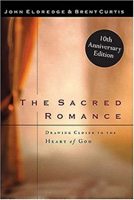 The Sacred Romance: Drawing Closer to the Heart of God
The Sacred Romance: Drawing Closer to the Heart of God 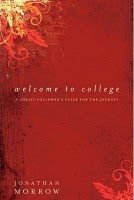 Welcome to College: A Christ-follower’s Guide for the Journey
Welcome to College: A Christ-follower’s Guide for the Journey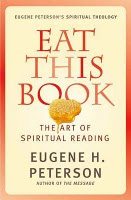 Eat This Book: The Art of Spiritual Reading
Eat This Book: The Art of Spiritual Reading 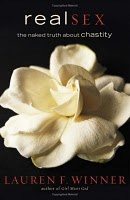 Real Sex: The Naked Truth about Chastity
Real Sex: The Naked Truth about Chastity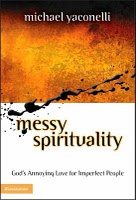 Messy Spirituality: God’s Annoying Love for Imperfect People
Messy Spirituality: God’s Annoying Love for Imperfect People 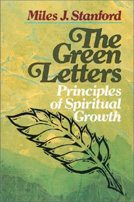
 5 Paths to the Love of Your Life: Defining Your Dating Style
5 Paths to the Love of Your Life: Defining Your Dating Style 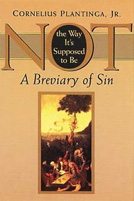 Not the Way It’s Supposed to Be: A Breviary of Sin
Not the Way It’s Supposed to Be: A Breviary of Sin
